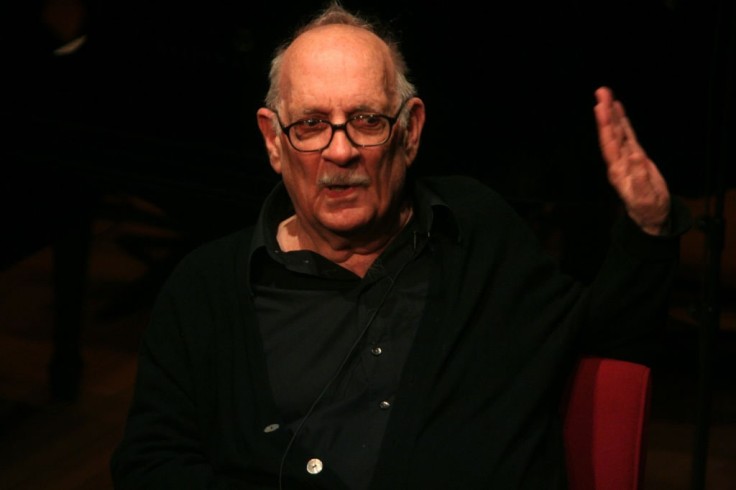
Famed Grammy and Pulitzer Prize composer George Crumb passed away. He was 92.
His record label, Bridge Records, posted an announcement regarding his death on social media, revealing that he died Sunday, February 6, 2022, at his Media, Pennsylvania home. "His wife Elizabeth and sons David and Peter were at his side. Dr. Crumb was preceded in death by his daughter Ann Crumb," the social media post also stated.
Grammy and Pulitzer award winning composer George Crumb (1929-2022) passed away on February 6, 2022, at age 92, at his Media, PA home. His wife Elizabeth and sons David and Peter were at his side. Dr. Crumb was preceded in death by his daughter Ann Crumb.
— Bridge Records, Inc. (@BridgeRecords) February 6, 2022
Despite the announcement, no cause of death has been disclosed to the public as of writing.
According to The Sun's report, Crumb's portfolio was "elective, working with multiple instruments and drawing inspiration from Asia to Appalachia."
Crumb In His Early Days
As per the said source, George Crumb was born on October 24, 1929, in Charleston, West Virginia. His parents, George Henry Crumb Sr and Vivian Crumb were clarinetists and cellists.
And at the age of 10, he was already able to compose music and played in a local orchestra as his father taught him to play the clarinet. In 1950, he earned his bachelor's degree at the Mason College of Music and got his master's degree two years later at the University of Illinois at Urbana-Champaign.
More with his education, in 1959, the composer received his doctorate in composition from the University of Michigan.
READ ALSO : Donny Gerrard Cause of Death Finally Revealed: Soul Band Lead Singer of Skylark Dead at 75
Crumb In The Music Industry
The New York Times reported that he still composed music into his 90s with the Chamber Music Society of Lincoln Center, celebrating his milestone with a premiere of a new piece he has written.
The well-known musician had himself known for his greatest hits like "Black Angels," which was said to be " an early example of his imaginative eclecticism," as per the publisher.
Other pieces also got the avant-garde composer known after he made a recording of whale songs made by a marine scientist, creating "Vox Balaenae (Voice of the Whale)" for electric flute, cello, and amplified piano in 1971.
Aside from that, he also got his work used in the horror film "The Exorcist," as his work "Threnody I: Night of the Electric Insects" was used for the official soundtrack.
He earned his Pulitzer Prize in 1968 with his orchestral piece "Echoes of Time and the River" and was awarded Best Classical Contemporary Composition for "Star-Child" at the 43rd Grammy Awards in 2001.
May his soul rest in peace.
© 2025 MusicTimes.com All rights reserved. Do not reproduce without permission.




